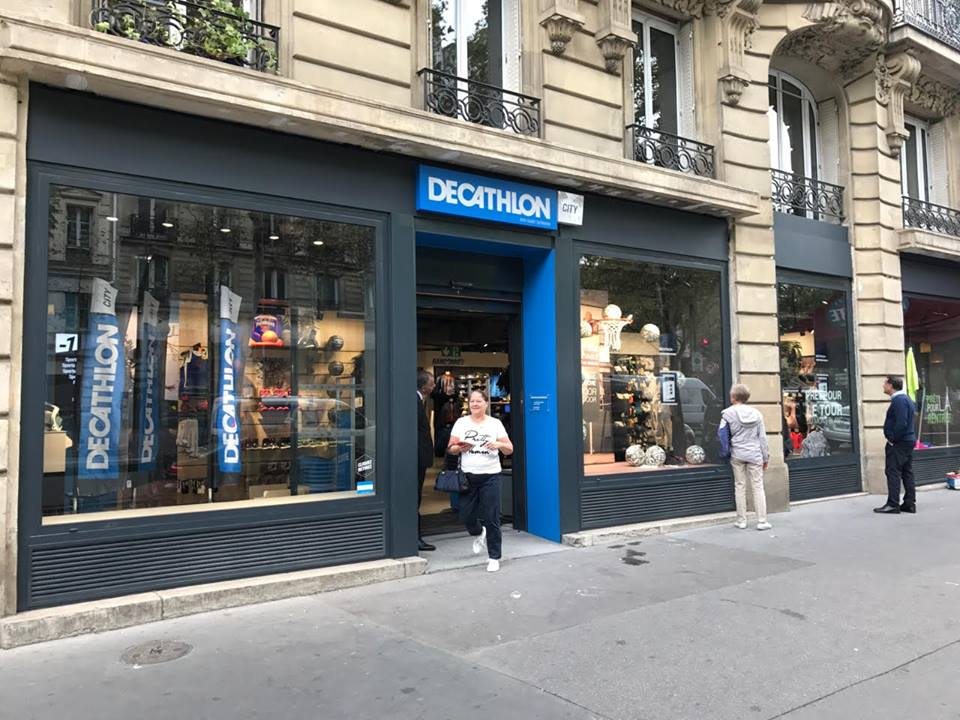Decathlon’s growth slows down as net income falls by 19% in 2018
Decathlon’s performance in 2018 was less energetic than in the previous year. After reporting an 11% growth in 2017, the French sport retail chain owned by the Mulliez family had to settle for a 5% revenue increase last year, a growth made possible by the retailer’s international expansion drive. Decathlon’s overall global sales reached €11.3 billion, while in France, the group's domestic market, they were worth €3.14 billion, equivalent to a 5% downturn.

The retailer’s profitability is shrinking: its net operating income in 2018 was €497 million, compared to €610 million in 2017, corresponding to a 19% shortfall. Decathlon’s gross operating income, produced by its 1,511 stores worldwide, was also down, to €828 million (-15%).
“This is a controlled downturn, not an imposed one,” said Nicolas Belluye, chief financial officer of Decathlon United, adding that “the slight weakening in our growth did not prevent us from cutting prices, in the order of 5% globally, nor is it blocking our international expansion.”
Decathlon is currently present in 51 countries, of which 12 newly entered in 2018 (notably Canada, Egypt, Cambodia and Greece). Another ten new countries are targeted for 2019, across all continents. Decathlon presented its annual results in Lausanne, Switzerland, on February 15, the first time it has done so outside France. The sport retailer began operations in Switzerland in 2017, where last year it incorporated the Athleticum chain.
In 2018, Decathlon struggled particularly in France, and has offered two main reasons for this: one is internal, relating to the reorganisation of its product range in-store, and the other is external, specifically the impact on the final part of the year of the ‘yellow vest’ demonstrations. In detail, last year’s gloomy financial year in France began for the group in the March-June period, when sales lost 7.4%.
“We introduced then a new in-store product strategy, reorganising the shelves by highly specific sporting activities (for example day-long hikes, trekking or trail running) and no longer by more general aggregations such as mountain or water sports, something that disrupted trading operations and meant customers felt a little lost,” said Belluye.
Some stores later decided to go back to the old system, since each store manager is now much more independent, reflecting the group’s new strategy of shifting to a horizontal decision-making model. The decision to overhaul product presentation stems also from Decathlon’s much finer segmentation strategy for its own brands, like Quechua or Tribord. These increased from 25 three years ago to 86 today, and will be targeting 100 sport activities by 2020.
Going back to Decathlon’s slumping performance in France, it did slow down in the rest of the financial year: from July to October 2018, sales were down only 1.9%. But the last two months of the year were extremely troubled, and Belluye estimated that the ‘yellow vest’ demonstrations caused a loss equivalent to 15% of sales. In the first week-end, some suburban stores recorded an 80% loss, at a time when city-centre stores were growing in double digits.

In 2018, Decathlon opened eight stores in France, and closed down another three, as some stores were competing too closely. Some of the new openings were smaller local stores, including those deploying the ‘City’ format in Lyon and Paris. Decathlon did not reveal whether this format had an influence on its profitability - it is more expensive to run - but is keen to push the format in 2019, opening more ‘City’ stores, notably next June in Lyon, again at the Confluence shopping mall. For example, sales at the Decathlon City in Bordeaux Sainte-Catherine grew 19% last year.
In 2018, Decathlon realised investments worth €620 million. It currently has 87,536 employees and 275 million customers worldwide. Altogether, its employees hold a 15% stake in the group, the rest being held by the Mulliez and Leclerq families.
Since the end of 2018, the group’s board of directors is chaired by Fabien Derville, who replaced Matthieu Leclercq. The latter reportedly stepped down following internal differences of opinion with regards to the future of major international brands within Decathlon’s range. These brands still represent 17% of the group’s revenue in France, but it seems their presence on the shelves was becoming increasingly discreet.
“This has been misunderstood. In our in-store reorganisation, we had to find a new positioning for these brands, which have their place within our stores. Our approach is to be an open, tolerant retail platform,” said Xavier Rivoire, in charge of external communication at Decathlon.
Copyright © 2024 FashionNetwork.com All rights reserved.


























